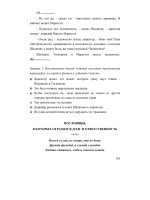Giáo trình oxford4 docx
Bạn đang xem bản rút gọn của tài liệu. Xem và tải ngay bản đầy đủ của tài liệu tại đây (61.61 KB, 11 trang )
bouyant.html
BOUYANT
BUOYANT
Buoys are buoyant. In the older pronunciation of “buoy” as “bwoy” this unusual spelling made more sense. Now that the pronunciation has shifted to
“boy” we have to keep reminding ourselves that the U comes before the O.
List of errors
file:///C|/Temp/livres/commonerrors/errors/bouyant.html03/09/2005 15:37:06
brand names
BRAND NAMES
Popular usage frequently converts brand names into generic ones, with the generic name falling into
disuse. Few people call gelatin dessert mix anything other than “Jell-O,” which helps to explain why
it’s hard to find Nabisco’s Royal Gelatin on the grocery shelves. All facial tissues are “Kleenex” to
the masses, all photocopies “Xeroxes.” Such commercial fame is, however, a two-edged sword: sales
may be lost as well as gained from such over-familiarity. Few people care whether their “Frisbee” is
the genuine Wham-O brand original or an imitation. Some of these terms lack staying power:
“Hoover” used to be synonymous with “vacuum cleaner,” and the brand name was even transmuted
into a verb: “to hoover” (these uses are still common in the UK). Most of the time this sort of thing is
fairly harmless, but if you are a motel operator offering a different brand of whirlpool bath in your
rooms, better not call it a “Jacuzzi.”
List of errors
file:///C|/Temp/livres/commonerrors/errors/brand_names.html03/09/2005 15:37:06
brang
BRANG, BRUNG
BROUGHT
In some dialects the past tense of “bring” is “brang” and “brung” is the past participle; but in standard English both are “brought.”
List of errors
file:///C|/Temp/livres/commonerrors/errors/brang.html03/09/2005 15:37:07
breach/breech
BREACH/BREECH
Substitute a K for the CH in “breach” to remind you that the word has to do with breakage: you can
breach (break through) a dam or breach (violate the terms of) a contract. As a noun, a breach is
something broken off or open, as in a breach in a military line during combat.
“Breech” however, refers to rear ends, as in “breeches” (slang spelling “britches” ). Thus “breech
cloth,” “breech birth,” or “breech-loading gun.”
“Once more into the breach, dear friends,” means “let’s fill up the gap in the line of battle,” not “let’s
reach into our pants again.”
List of errors
file:///C|/Temp/livres/commonerrors/errors/breach.html03/09/2005 15:37:07
breath/breathe
BREATH/BREATHE
When you need to breathe, you take a breath. “Breathe” is the verb, “breath” the noun.
List of errors
file:///C|/Temp/livres/commonerrors/errors/breath.html03/09/2005 15:37:08
bring/take
BRING/TAKE
When you are viewing the movement of something from the point of arrival, use “bring”: “When you
come to the potluck, please bring a green salad.” Viewing things from the point of departure, you
should use “take“: “When you go to the potluck, take a bottle of wine.”
List of errors
file:///C|/Temp/livres/commonerrors/errors/bring.html03/09/2005 15:37:08
ax
BUILD OFF OF
BUILD ON
You build on your earlier achievements, you don’t build off of them.
List of errors
file:///C|/Temp/livres/commonerrors/errors/built.html03/09/2005 15:37:08
bumrush/bum’s rush
BUMRUSH
BUM’ S RUSH
A 1987 recording by the rap group Public Enemy popularized the slang term “bumrush” as a verb meaning “to crash into a show hoping to see it for
free,” evidently by analogy with an earlier usage in which it meant “a police raid.” In the hip-hop world to be “bumrushed” (also spelled as two words)
has evolved a secondary meaning, “to get beaten up by a group of lowlifes, or ” bums”. However, older people are likely to take all of these as mistakes
for the traditional expression “bum’s rush,” as in “Give that guy the bum’s rush,” i.e. throw him out unceremoniously, treating him like an unwanted
bum. It was traditionally the bum being rushed, whereas in the newer expressions the bums are doing the rushing. it’s good to be aware of your audience
when you use slang expressions like this, to avoid baffling listeners.
Side note: Britons laughed themselves silly when they saw Americans wandering around in sportswear with “B.U.M.” plastered in huge letters across
their chests. “Bum” means “rear end” in the U.K.
List of errors
file:///C|/Temp/livres/commonerrors/errors/bumrush.html03/09/2005 15:37:09
butt
BUTT NAKED
BUCK NAKED
The standard expression is “buck naked,” and the contemporary “butt naked” is an error that will get you laughed at in some circles. However, it might
be just as well if the new form were to triumph. Originally a “buck” was a dandy, a pretentious, overdressed show-off of a man. Condescendingly
applied in the U.S. to Native Americans and black slaves, it quickly acquired negative connotations. To the historically aware speaker, “buck naked”
conjures up stereotypical images of naked “savages” or—worse—slaves laboring naked on plantations. Consider using the alternative expression “stark
naked.”
List of errors
file:///C|/Temp/livres/commonerrors/errors/butt.html03/09/2005 15:37:09
by/’bye/buy
BY/’BYE/BUY
These are probably confused with each other more often through haste than through actual ignorance,
but “by” is the common preposition in phrases like “you should know by now.” It can also serve a
number of other functions, but the main point here is not to confuse “by” with the other two spellings:
“’bye” is an abbreviated form of “goodbye” (preferably with an apostrophe before it to indicate the
missing syllable), and “buy” is the verb meaning “purchase.” “Buy” can also be a noun, as in “that
was a great buy.” The term for the position of a competitor who advances to the next level of a
tournament without playing is a “bye.” All others are “by.”
List of errors
file:///C|/Temp/livres/commonerrors/errors/by.html03/09/2005 15:37:09
cache/cachet
CACHE/CACHET
“Cache” comes from the French verb cacher, meaning “to hide,” and in English is pronounced
exactly like the word “cash.” But reporters speaking of a cache (hidden horde) of weapons or drugs
often mispronounce it to sound like cachet—“ca-SHAY” —a word with a very different meaning:
originally a seal affixed to a document, now a quality attributed to anything with authority or
prestige. Rolex watches have cachet.
List of errors
file:///C|/Temp/livres/commonerrors/errors/cache.html03/09/2005 15:37:10









